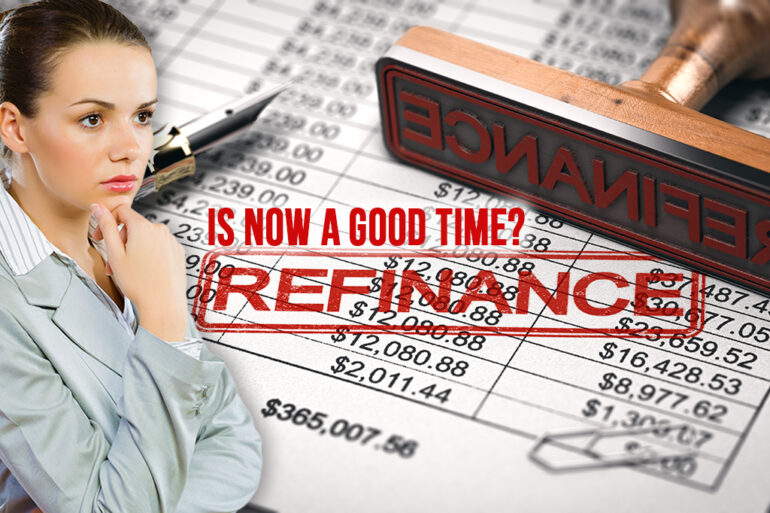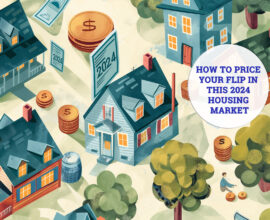Could Now the Best Time to Refinance Your Rental Property?
Making financial moves in the middle of a pandemic is nerve-wracking. Rental property owners currently find themselves in this position, and we are here to offer insight.
The hows and whys are intricate, and sifting through all the necessary information can be laborious. That’s why we have a simple breakdown of what has happened in the last year and what to expect in the coming months.
The COVID-19 Impact
COVID-19 has had a huge effect on housing in general, contributing both positively and negatively to the rental environment. First, the beginning of the pandemic saw people move from cities in fear of crowds. Additionally, work from home requirements meant people could work from anywhere. The situation led to people removing their houses from sale inventory as indefinite lockdowns caused them to hunker down.
As businesses got back to normal — or at least semi-normal — later in the summer of this year, homebuying picked up more steam. We’ve seen unhistorically high demand and record low supply, which only dipped in July this year after buyers began pulling back from the high prices.
The eviction moratorium came into force in September 2020 to cushion tenants from eviction. Without proper rental assistance, it has been a difficult time for both landlords and tenants, with landlords facing unmitigated loses. It’s a mess that has not been solved as the feds continually “kick the can” down the road with endless moratorium extensions.
The return to normal was responsible for the optimistic economic outlook experienced up until the start of the third quarter of the year. The rollout of vaccinations and lift on lockdowns brought confidence that business as usual would resume.
Rent demand started rising, going up 7% for one-bedroom houses and 8.5% for two-bedroom apartments in July. Single-family rentals also hit an all-time high.
A Silver Lining
COVID-19 has not been entirely disastrous. Like many sectors that have benefitted from it, housing has had its share of low mortgage interest rates.
Although commercial property rates are usually slightly higher than private property, the market is enjoying one of the lowest rates in history. On July 22, 30-year fixed-rate interests dropped to 2.78% from the 3.02% rate on June 24.
It’s important to note that the homebuying spree started slowing down in late July of 2021. This has been attributed to the extremely high housing prices forcing buyers to hold back, more houses being released to the market, and the market simply following its pattern of dipping in the fall. Whatever the reason, things are looking up for landlords since the demand for rental houses is on the rise.
Thanks to the improving economy, more people can afford to move out, especially from shared housing. They can also pay higher rents, allowing landlords trying to recoup losses to increase rent. Reportedly, tenants are willing to put down more in security deposits and pay above normal rates.
Clearly, many rental property owners are in a good place to refinance their property. Low interest rates are currently attractive and could be taken advantage of to get better deals on the current mortgage.
One could go for a rate-and-term refinance to secure lower interest rates. Alternatively, choose a cash-out refinance to negotiate for a new larger mortgage on an existing one and receive cash from the difference. The extra cash earned can be put into new rental investments and could be game-changing as the economy bounces back.
The presently overpriced housing market also works in favor of landlords. As buyers hold back and the season dips, tenancy becomes the in-between option. High demand for rental housing means property owners are set to collect more rental income through high occupancy and high prices.
The surplus income can in turn be used to make cash-in refinances. Cash-in refinancing immediately reduces loan interest and term when a deposit is made on the mortgage principal. Likewise, increasing income could lower interest rates on rental property financing because lenders use the borrower’s income to determine rates.
So Why Wouldn’t You Refinance?
Although the market looks better now, be cautious. What’s concerning is that the pandemic situation remains unpredictable, especially since the emergence of the Delta variant. What we thought would stabilize soon could be in jeopardy as the country and the world considers going back to lockdowns.
If lockdowns resume, it will mean a halt to the ongoing return to business. We would go back to working from home, thus decreasing the demand for rental housing. Similarly, the extension of the eviction moratorium means property owners might be stuck with non-paying and delinquent tenants they still cannot remove.
The other tricky consideration is a fixed rate interest. As much as it is a good time to lock in the low rates, other aspects involved in refinancing need to be factored in.
For instance, amortization schedules use a high percentage of the monthly payments to pay off interest early in the loan. Consequently, it reduces equity on the property because it can take a long time before a significant portion of the principal amount is reduced. What’s more, an extended repayment period could translate to higher amounts than the initial being paid over the life of the loan, rendering the lower rate useless.
Carefully Weigh the Pros and Cons
In the end, refinancing stretches out the payback timetable and costs you more payments that are a higher percent of interest. You also usually pay closing costs like points and closing fees, not to mention the time and stress involved in completing the refinance.
All of these things need to be considered and carefully examined to see if a refinance is worthwhile. Refinancing is about a lot more than just an APR they lock you in on.
The present pandemic market is highly volatile and often too unstable to make binding decisions in, but with more information and data, one can get an edge on this fertile environment and make the best out of it. Property owners should evaluate their individual positions to determine what is best in their specific circumstances using the points outlined above.







